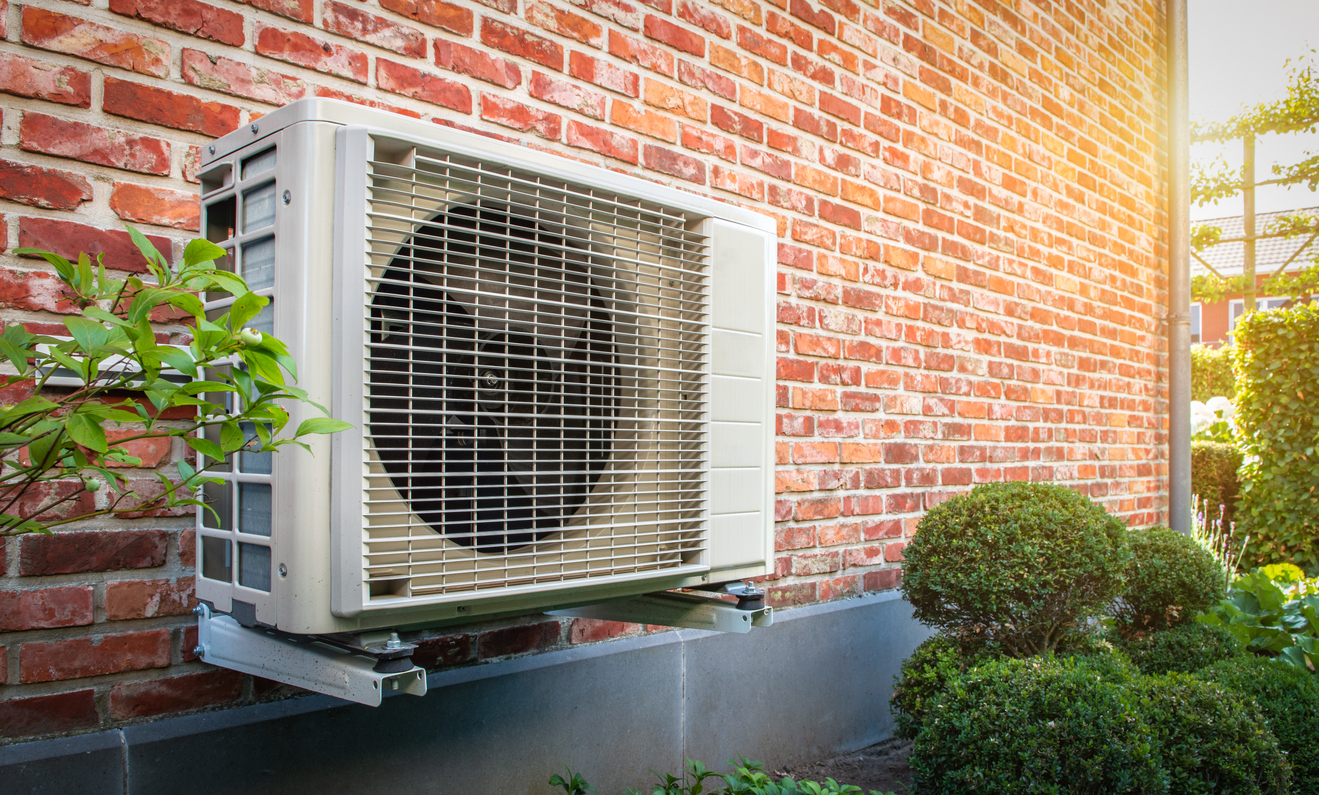Why is my heat pump dripping water inside?
Picture this: You’re comfortably lounging in your living room, sipping on your favourite drink, when you suddenly notice an unsightly water spot on the floor or, worse, a persistent drip from your heat pump. It’s a scenario no homeowner wants to face. Heat pumps are designed to provide comfort, not create indoor puddles! So, you might be wondering "why is my heat pump dripping water inside?"
Whether you’re trying to solve a pressing issue or simply curious about the inner workings of your HVAC system, this blog will delve into the common reasons behind this unsettling occurrence and offer actionable solutions to get your unit back in tip-top shape. Dive in with the experts at Thomson Industries as we demystify this damp dilemma!
Get 24/7/365 Expert Help in Heat Pumps
When it comes to ensuring uninterrupted comfort in your home, Thomson Industries has you covered round the clock. Embodying their steadfast 24/7/365 policy, we stand by our commitment to assist you any day, any time—without any additional charges. With a legacy spanning over 25 years in the industry and every one of our technicians Right Time™ certified, our expertise in HVAC systems is unparalleled. This wealth of experience ensures that not only do you receive timely assistance but also the assurance of top-notch service quality from seasoned professionals. Whether it’s a holiday, weekend, or the middle of the night, with Thomson Industries, expert help is always just a call away.
Why is my heat pump leaking water?
A heat pump leaking water can be concerning, but it’s a common issue that homeowners may encounter. To help you get a better grasp on the issue, here’s a breakdown of the various reasons why your heat pump might be experiencing water leakage:
A clogged condensate drain
Heat pumps function by extracting moisture from the air. This moisture then condenses into water. Under normal circumstances, this water drains away smoothly through the condensate drain system. However, the condensate drain line can, over time, become obstructed by various types of debris, such as dirt, mould, algae, or even small insects. Over time, this can lead to the blockage of water, which in turn can cause a backup and eventual leakage.
A dirty coil
The water leakage might be due to something as straightforward as a grimy coil. Your heat pump contains an evaporator coil designed to extract moisture from the air and channel it out of the system. However, if this coil accumulates dirt, it can disrupt the drainage mechanism. Instead of flowing smoothly into the drain, the moisture may slide off the coil, leading to a leak.
A frozen evaporator coil
Under specific conditions, the evaporator coil of your heat pump can freeze. For one, if the air filter isn’t cleaned and replaced regularly, it can become clogged and restrict airflow, which can result in the cold evaporator coil and even freezing. Another reason is if the refrigerant levels in your heat pump drop below the optimal levels, it can also lead to the evaporator coil becoming excessively cold and freezing. When this frozen evaporator coil eventually thaws, it can produce a larger quantity of water than the system can effectively handle.
Drain pan problems
If the condensate drain pan becomes obstructed by things like debris, mould, or algae, it can lead to water overflowing and forming a pool around your pump. Also, over time, the condensate pan situated under your heat pump’s evaporator coil might get damaged. It could develop cracks, rust, or could be misaligned due to various reasons. A damaged or improperly aligned pan will not hold or direct water effectively, leading to leaks.
Do I need to service my heat pump constantly?
While you don’t need to service your heat pump “constantly,” regular maintenance is crucial for optimal performance and longevity. Regular servicing ensures that your heat pump operates at its peak efficiency. Regular checks and maintenance can extend the life of your heat pump, and these periodic check-ups can help spot and rectify minor issues before they escalate into major, costly problems. This not only guarantees that you get the best possible comfort but also that your energy bills are kept in check.
When should I service my heat pumps?
At a minimum, it’s best to have a professional service your heat pump once a year. This will typically involve cleaning or replacing filters, checking the refrigerant level, inspecting electrical connections, and ensuring the system is operating efficiently. It’s also good practice to check (and, if necessary, replace) the filters every few months, especially during heavy usage seasons. Furthermore, if you own an older model, more frequent checks might be necessary.
If my heat pump is dripping water inside, should I call an emergency HVAC professional?
If you have a leaking heat pump, it’s a clear indication that something is amiss. Should you spot a leak, contact a heat pump specialist right away to arrange for heat pump servicing and avoid additional damage. While some causes, like a clogged drain line or full condensate pan, can be straightforward to fix, other issues, like refrigerant leaks, require immediate professional attention.
There are a few ways you can assess the situation beforehand to determine whether your heat pump leaking is an emergency situation. Here’s what you can do:
First, visually inspect the volume of the leak. If it’s a minor drip, you might be able to manage it temporarily by placing a container to catch the water until your scheduled service call (don’t forget to monitor and empty the container if it gets full!). However, if there’s a significant amount of water leaking, call a professional immediately to prevent potential water damage to your home.
Next, see if you can find the location of the leak. If the leaking water poses a risk to electrical components and furniture or can lead to structural damage, this qualifies as an emergency situation, and it’s essential to get your heat pump addressed as soon as possible.
Finally, if the leaking heat pump is accompanied by other unusual symptoms, such as strange noises, freezing, or the heat pump not cooling/heating effectively, these are signs that the system may be experiencing more significant issues. Call for service immediately.
While a dripping heat pump might not always warrant an “emergency” call, it’s always a good idea to consult with an HVAC professional sooner rather than later. That’s why we offer same-day and next-day appointments here at Thomson Industries. Prolonged water leaks can exacerbate the problem and lead to secondary issues, such as mould growth or structural damage.
Schedule a routine maintenance with Thomson Industries today
Are you ready to schedule routine heat pump maintenance? You’re in the right place! At Thomson Industries, we’re dedicated to enhancing home comfort from Vancouver to Burnaby and beyond. Or perhaps you’re ready for a complimentary in-home estimate on a new heat pump system! Reach out and book your first meeting with our Home Comfort Advisors. Plus, we offer attractive savings and financing solutions to lighten the initial expense. Here at Thomson Industries, our team eagerly awaits the opportunity to help you save big!










